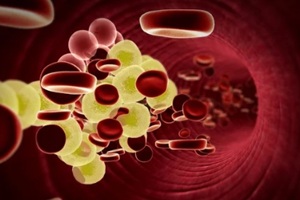 When you’re young and healthy, your cholesterol is probably not on your mind. But skipping cholesterol screenings in your 20s and 30s could eventually put you at risk for serious health problems.
When you’re young and healthy, your cholesterol is probably not on your mind. But skipping cholesterol screenings in your 20s and 30s could eventually put you at risk for serious health problems.
Here’s why younger adults should prioritize cholesterol screenings.
Know Your Baseline
Your first cholesterol screening in your 20s or 30s provides a baseline for future test results. By establishing healthy cholesterol levels early, you and your doctor can better monitor for unhealthy changes over time that may indicate a need for lifestyle adjustments or medication.
Your first screening reveals your total cholesterol, LDL “bad” cholesterol, HDL “good” cholesterol, and triglycerides. Follow-up screens assess changes. Sudden total or LDL cholesterol elevations, an expanding gap between HDL and LDL levels, or new triglyceride troubles warrant further attention. Your first screening sets the foundation for lifelong heart health monitoring.
Decode Your Family History
Since high cholesterol often runs in families, knowing your levels can clarify if you’ve inherited a predisposition. Familial hypercholesterolemia (FH) is a genetic condition causing severely elevated total and LDL cholesterol.
It accelerates fatty plaque accumulation within arteries to enhance heart attack and stroke risk. If you have elevated cholesterol early on, one or both parents probably did too. Pinpointing an FH source or even families tending toward high “normal” cholesterol establishes proper monitoring and treatment to reduce your cardiovascular disease risk.
Reveal Hidden Health Threats
Surprisingly, high cholesterol produces no definitive symptoms. You can feel great and still have total cholesterol or LDL levels high enough to start arterial plaque buildup. This accumulation impedes blood flow and slowly damages arteries that feed the heart and brain, setting the stage for dysfunction.
Early screening reveals these “silent” health threats that may otherwise go undetected for years until more serious heart issues such as chest pain, heart failure, or events such as heart attacks or strokes arise. Knowing sooner helps prevent irreversible cardiovascular damage later in life.
Customize Your Prevention Plan
Just as everyone’s cholesterol levels differ, so does each person’s path to controlling them. Early screening arms you and your doctor with the information needed to custom-design a prevention strategy that works for your age, health status, lifestyle, and cholesterol levels.
Important facets of your care plan may include dietary counseling to limit cholesterol intake, increasing soluble fiber foods that minimize absorption, encouraging regular aerobic and weight training exercise, identifying secondary contributors such as obesity or diabetes necessitating treatment, and determining the best recheck intervals to assess the plan’s effectiveness.
Follow-up screenings assess prevention plan progress and determine any needed adjustments over the years.
Maximize the Impact of Lifestyle Changes
 Diet and exercise influence cholesterol at any age, but healthy habits adopted earlier amplify impact over your lifetime. Starting cholesterol management through lifestyle approaches in your 20s and 30s allows preventive behaviors to take better hold and make a bigger difference long-term than changes made later. Essentially, the result is exponentially better outcomes over decades versus years.
Diet and exercise influence cholesterol at any age, but healthy habits adopted earlier amplify impact over your lifetime. Starting cholesterol management through lifestyle approaches in your 20s and 30s allows preventive behaviors to take better hold and make a bigger difference long-term than changes made later. Essentially, the result is exponentially better outcomes over decades versus years.
For example, substituting olive oil for butter and adopting running over your lifetime meaningfully outperforms swapping cooking oils and taking leisurely walks later down the road. Healthy living’s preventive payoff gets bigger the earlier it starts.
Accommodate Special Considerations
Certain groups are particularly at risk for early heart disease tied to high cholesterol. South Asians and Hispanics, for example, tend to develop risk factors sooner than other populations. Additionally, FH occurs across all races. Being aware of your ethnic-specific risks for this via early screening enables proactive precautions.
When indicated, medications can also start sooner when they stand to provide greater lifetime protective effects against irreversible damage. Finding problems before they compound makes accommodating special considerations, including possible statin use, much more impactful.
Gain Peace of Mind
Uncertainty about your cholesterol can weigh on your peace of mind. Getting screened eliminates guesswork and empowers you to take charge of your health. Even excellent results bring reassurance you’re on the right heart-healthy track.
No matter your outcome, taking control of your risk feels great. Cholesterol screening gives you the knowledge to seek lifestyle improvements or treatments for self-care that can bring cholesterol or triglyceride levels into a healthy range and promote lifelong heart wellness.
Are Statins Ever a Good Option for Younger Adults?
The discovery of high cholesterol may prompt a discussion of cholesterol-lowering statin medication. Do benefits outweigh risks for younger statin candidates? Here are some important considerations:
- Statins are effective for rapidly reducing high LDL cholesterol for concerning heart disease development. Lifestyle measures alone often cannot overcome genetic predispositions.
- Research increasingly shows that prolonged exposure to elevated LDL cholesterol drives cardiovascular risk more than levels at any given time. Statins may plausibly provide greater preventive impact the earlier they are started.
- Most young adults tolerate statins well. Side effects such as muscle aches rarely emerge and are easily managed by changing medication.
- Cost no longer deters access. Multiple statins now come available as very affordable generics that make this lifesaving class of medication accessible to younger adults.
In cases of markedly elevated LDL cholesterol or other compounding risk factors, statins present a reasonable consideration for younger adults. As always, the decision requires thoughtful discussions between patients and doctors.
Schedule Your Cholesterol Screening Today
 Getting your cholesterol checked helps safeguard your health now and for years to come. Imperial Center Family Medicine strongly advocates for cholesterol screening in younger adults. Our team in Durham, NC is here to help you by interpreting results, proposing lifestyle improvement strategies, and looking at medication options in a caring manner that respects patient goals, values, and preferences.
Getting your cholesterol checked helps safeguard your health now and for years to come. Imperial Center Family Medicine strongly advocates for cholesterol screening in younger adults. Our team in Durham, NC is here to help you by interpreting results, proposing lifestyle improvement strategies, and looking at medication options in a caring manner that respects patient goals, values, and preferences.
Don’t take chances with your heart health. Contact us today at 919-873-4437 or online to schedule your cholesterol screening and take the first step toward lifelong cardiovascular well-being.
